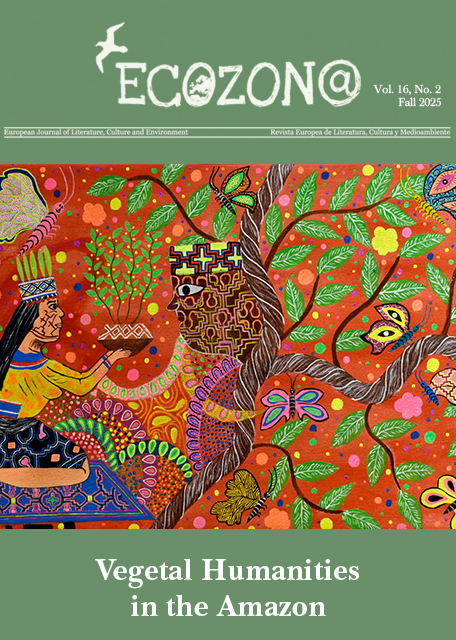Du Bois and Dark, Wild Hope in an Age of Environmental and Political Catastrophe
DOI:
https://doi.org/10.37536/ECOZONA.2020.11.2.3500Parole chiave:
Environmental Humanities, W.E.B. Du Bois, Climate Change, Environmental Justice, HopeAbstract
The question of hope and its relation to despair looms all around us—in private conversation and in public discourse. In Environmental Humanities and the Literary Arts, one finds a pervasive pessimism as these fields grapple with such catastrophes as climate change and white nationalism. In this article, I investigate and critically appropriate W. E. B. Du Bois’ notion of a dark, wild hope, suggesting that this particular form of hope is needful as we confront various environmental and political crises. I begin the article by exploring a form of hope that sustained Du Bois in the face of persistent racism—including environmental racism. Next, I argue that Du Bois’ dark, wild hope can help us think about forms of hope appropriate for our own time. Du Bois’ response to the catastrophes that he faced is instructive as we attempt to respond robustly to our current catastrophes. Resilience and vulnerability, resistance and uncertainty, transformation and constraints—these aspects of the human drama informed Du Bois’ dark, wild hope. And this hope—not sunny and Pollyannaish, but rather rooted in suffering, trial, and grief—is a powerful resource for us today.
Downloads
##submission.downloads##
Pubblicato
Fascicolo
Sezione
Licenza
Authors who publish with this journal agree to the following terms:
a) Authors retain copyright and grant the journal right of first publication with the work simultaneously licensed under a Creative Commons Attribution License that allows others to share the work with an acknowledgement of the work's authorship and initial publication in this journal (CC BY-NC for articles and CC BY-NC-ND for creative work, unless author requests otherwise.
b) Authors are able to enter into separate, additional contractual arrangements for the non-exclusive distribution of the journal's published version of the work (e.g., post it to an institutional repository or publish it in a book), with an acknowledgement of its initial publication in this journal.
c) Authors are permitted and encouraged to post their work online (e.g., in institutional repositories or on their website) prior to and during the submission process, as it can lead to productive exchanges, as well as earlier and greater citation of published work (See The Effect of Open Access).










